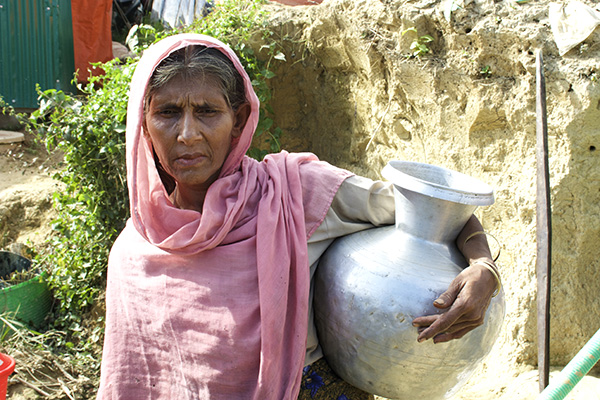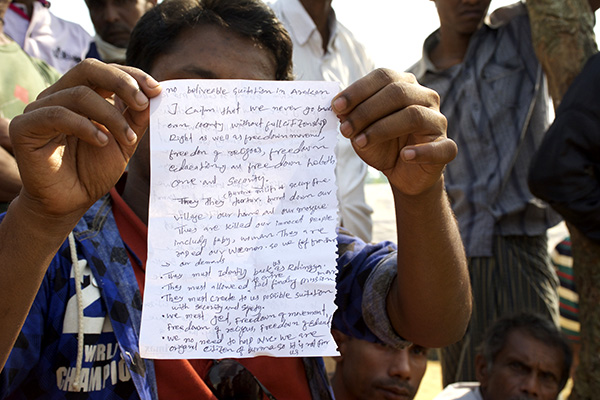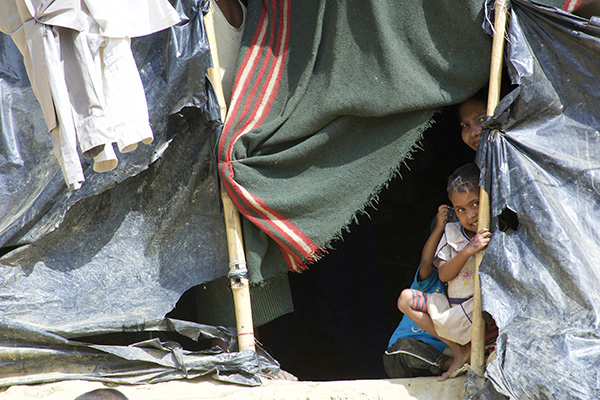Recommendations Regarding the Rohingya
31 January 2017
Arakan State, Burma

In August 2017, the Burma Army launched a major “cleansing operation” against the Rohingya people in Arakan State in western Burma. This was a large-scale escalation of a similar but smaller operation that had taken place 10 months before and had resulted in numerous accusations of human rights violations and abuses by the Burma Army; it also represented the first “official” involvement of the military in the ongoing violence between the local Rakhine population and the Rohingya people. Since August 25th, 2017, the current operation has sent more than 700,000 Rohingya fleeing to Bangladesh; five months later, they continue to come, bringing little more than reports of brutality and devastation wreaked by Burma Army soldiers, and a determination to not go back until real change has happened in their homeland.
Yet, their current situation in squalid refugee camps in Bangladesh is also not sustainable. The Bangladesh Army officers in charge of coordinating and protecting the camps watch with concern as hills are cleared to make space for more dwellings, as trees crucial for erosion prevention are cut to supply the endless demand for firewood, and as more wells are dug only to dry up in a few weeks. The oncoming rainy season could mean more disaster for many of the people in these camps. The situation is not sustainable and action must be taken.

Having talked with refugees, local activists, other ethnic people from Burma, military personnel involved in managing the camps, and others, the following are our recommendations for action.
Our recommendations:
1. All diplomatic measures should be used to leverage the Burma Army to take action and open up access. This would include broad economic sanctions, cessation of military cooperation, and prosecution at the International Criminal Court.
2. International and local aid organizations and international human rights monitors should be allowed unfettered access to Rakhine State immediately to provide aid to those Rohingya people still remaining and others displaced by the violence as well as independent monitoring of the situation.
3. The international community should work with and through the local ethnic organizations to provide aid directly to the people most in need. This additional direct aid should not be through any Myanmar Government arm.
4. The current refugee situation in Bangladesh is unsustainable over a long period of time. The international community or another independent body should facilitate dialogue towards repatriation of the Rohingya refugees; this should include the Burma government, Burma military, the Bangladesh government and Rohingya community representatives. Repatriation should not happen until a consensus has been reached among these groups.

For additional reports on the Rohingya, please see the following articles:
Letter from the Director Regarding Attacks on the Rohingya People
Interview with a Rohingya Refugee: One Family’s Stor of Brutality and Survival
